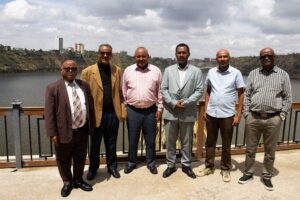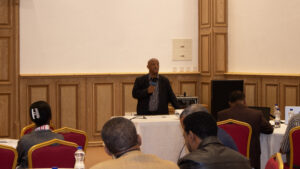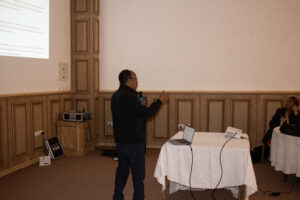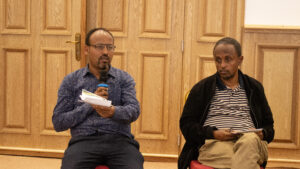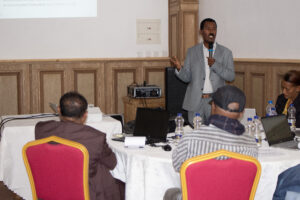EVA and WTS Jointly Organized Consultative Workshop on the Development of Standard Animal Welfare Guidelines for Ethiopia’s Livestock Value Chain; Adoption of WTS Animal Welfare Guideline for Development
On April 15, 2025, EVA and WTS Jointly Organized a Consultative Workshop on the Development of Standard Animal Welfare Guidelines for Ethiopia’s Livestock Value Chain; Adoption of WTS Animal Welfare guidelines at Noora Resort, Bishoftu
The workshop aimed to raise awareness on the need for a comprehensive National Animal Welfare Guideline and the adoption of WTS Animal Welfare Guideline for Development Organizations at national and international stages.
The event brought together experts from various institutes including (Research institutes (ILRI), Academia (AAU), the Ministry of Agriculture and its accountable institutions, professional bodies (ESAP, EVA, Pastoral forum), Charity organizations (The Brooke, TDS, SPANA) and consulting organizations in development). Dr. Alemayehu Mekonnen warmly welcomed the participants on behalf of H.E. Dr. Fikru Regassa, State Minister for the Livestock and Fisheries Sector, Ministry of Agriculture, officially opened the workshop.
In the plenary session, two presentations were made: An Overview of Animal Welfare Development in Ethiopia: National Animal Welfare Guideline (for food animal) by Dr. Hadgu Mandefro (MoA) and WTS Animal Welfare Guidelines for International Development Organizations by Dr. Bojia E. Duguma (EVA President). The key topics addressed include:
- The challenges and opportunities of Animal Welfare Development in Ethiopia
- Current developments: Animal Welfare Proclamation, National Animal Welfare Guideline for food animals
- The current global development in animal welfare (with reference to WOAH)
- Awareness raising on the need of animal welfare in livestock and livestock integrated livelihoods programmes and introduction of WTS Animal Welfare Guidelines for possible adoption.
Engaging discussions were held on both presentations, with participants exploring the strengths and weaknesses of both guidelines. The participants pinpointed the complementarity between the guidelines and suggested possible adoption of the WTS Animal Welfare Guideline to improve the National Animal Welfare Guideline. The workshop concluded with remarks from Dr. Alemayehu M., who expressed gratitude for the WTS and participants’ valuable contributions and dedication.
